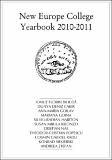| dc.contributor.author | Susan M Kilonzo | |
| dc.date.accessioned | 2020-08-25T07:42:59Z | |
| dc.date.available | 2020-08-25T07:42:59Z | |
| dc.date.issued | 2011 | |
| dc.identifier.uri | https://repository.maseno.ac.ke/handle/123456789/2321 | |
| dc.description.abstract | The 2007 general election in Kenya is reminisced as an event that exemplified destruction that ethnic politics can have on a country. It was clear that most Kenyan politicians are ethnically aligned and divided in political endeavors. They are using the ethnic card to survive and hang on to power. This paper however argues that in this kind of pandemonium, where human rights find little or no respect from these leaders, there is yet another institution that can be non-tribal and non-partisan because it is a separate entity from the state. This institution is the Church. When politicians are divided and seek to divide the populace along ethnic lines, pitting one ethnic community against the other; when support for political positions is sought along ethnic boundaries and when ethnic enclaves are thought to be the safest anchorages for securing not only political positions but also economic resources; religious groups, and … | en_US |
| dc.publisher | NEW EUROPE COLLEGE-Institute for Advanced Studies | en_US |
| dc.subject | Politics / Political Sciences, Social Sciences, Theology and Religion | en_US |
| dc.title | THE POTENTIAL OF THE CHURCH AS A COMMUNITY INSTITUTION IN PEACEBUILDING IN AFRICA. LESSONS FROM KENYA’S ETHNIC CONFLICTS | en_US |
| dc.type | Article | en_US |

